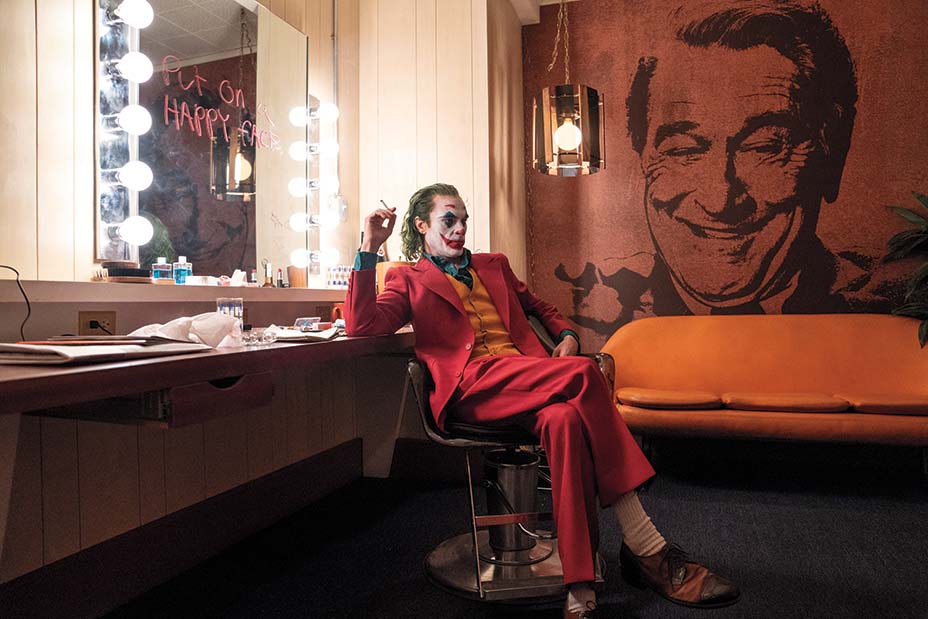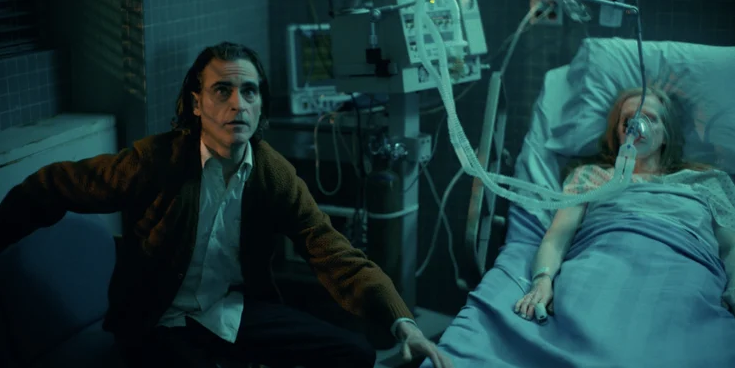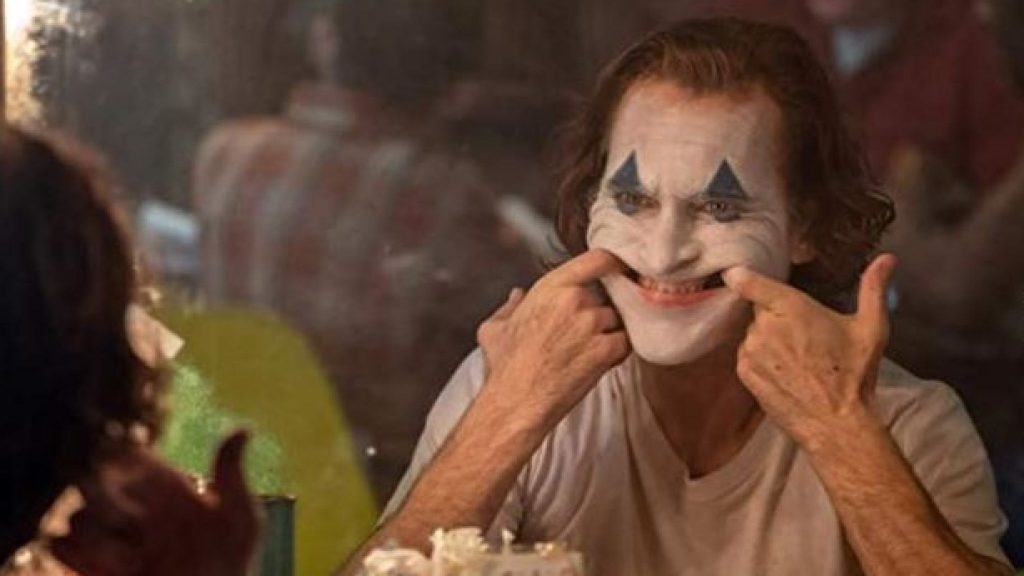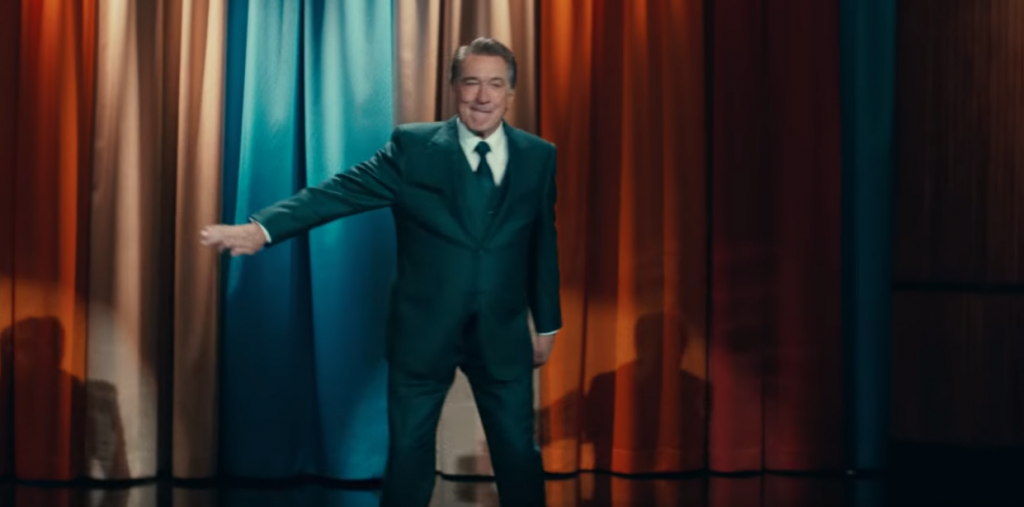
Joaquin Phoenix gives a masterful performance in a film that often struggles to live up to it while still managing to create a world worthy of a Batman.
While I have no real desire to discuss Joker, director Todd Phillips’ take on the DC Comics supervillain, as an exercise into how virtue signaling can sometimes be a square peg forced into a round hole, I suppose, given the overreaction to a film that is no better or worse than any other crime film of its type, I almost have no choice, but we’ll get to that later.
First, let’s talk about the film itself.
As a character, the Joker is a cipher by design. With no definitive origin–something routinely used in the comics as a plot point–the so-called Clown Prince of Crime is a perpetual blank slate for any creator, so long as the end result is the right mixture of insanity and violence.
But insanity is such a broad definition, and while in the comics, it’s enough to simply call a villain crazy and move on, when it comes to fleshing out a rounded (or semi-rounded) character, one might want to know the ‘why’ behind the crazy.
Joker attempts to deliver such answer against a backdrop (beautifully photographed by cinematographer Laurence Sher) of an even crazier version of Gotham City modeled after the scuzziest parts of New York City.
Much is made of Phillips’ open homage to Martin Scorsese, who was originally set to produce before responsibilities on the upcoming The Irishman became all-consuming. The level of homage, split almost evenly between Taxi Driver and The King of Comedy has, in turn, made Phillips a punching bag of sorts, despite the fact that this was largely due to the involvement of Scorsese so early into production.
Despite that conventional pseudo-wisdom, to say that those two films are the primary influence is both on-the-nose and yet manages to undercut the actual story being told in the film.
Joaquin Phoenix stars as Arthur Fleck, a mentally ill professional clown who drifts through life in the dingy, dimly lit streets of Gotham circa 1981. He has zero prospects and even less hope, even though he fantasizes about being a standup comic for no real reason other than his also clearly-disturbed mother (Frances Conroy) calls him Happy and together they watch a late-night talk show featuring Murray Franklin (a surprisingly miscast Robert DeNiro), a hammy entertainer well past his prime.
It’s here where the criticism of Joker becomes largely valid, as much of the film seems like a mood board in a writer’s room that features plenty of ideas, but little connective tissue.
That is, until you accept that Phoenix is the connective tissue.

Practically everything in Joker rises and falls with Phoenix’s performance, and that performance ultimately makes Joker an exceptional character study of not only how villains are created, but more importantly, why they exist in the first place.
By giving Fleck a mental disorder where he laughs uncontrollably in moments of discomfort or stress, an interesting, and layered backstory presents itself in a way that forces that discomfort onto the audience, largely proven and supported by the fact that so many critics dismiss it as some sort of hackneyed plot device.
Here, there’s no Caped Crusader, no Dynamic Duo, just a city where every single person featured, rich, poor or otherwise is a victim, finally giving viewers a version of Gotham City that desperately needs a Batman.
It’s not a plot device, it’s the raison d’être.
In America (and certainly many other places globally), mental illness is still a specter of sorts. We know it exists, we have empathy for those who suffer from it, but we never truly look it in the eye. Mental illness, as a subject, perpetually lives out on the fringes, and including it within a story can be hard for some to swallow.
Case in point: one of the most unsettling scenes in the film wasn’t one of extreme violence or mayhem. While riding on a bus, Fleck sees a child staring at him, at which point he starts pantomiming with him until the mother rudely asks Fleck to leave the child alone. This causes Fleck to burst out into painful laughter at which point he hands a laminated business card explaining that his laughter is a condition.
That look of confusion and bemusement on the woman’s face is tantamount to what most people feel when confronted with mental illness, and the result is every bit as stomach churning as when we see it in documentaries, or even out in the street.
How does one truly tackle mental illness in a comic book film without either glazing over it or making it a joke a la the Deadpool series. There may be plenty of laughter in Joker, but not much of it is meant to be funny.
By diving into the more mundane aspects of Fleck’s illness, such as visits with a court-appointed therapists, we get a look at how the mentally ill were once (and often continue to be) shuffled through the system, with little in the way of compassion or care beyond the bare minimum, and if we’re being honest, the gravity of this gets away from Phillips but is fully embraced by Phoenix, and to great effect.

That’s the dire fact that threatens to sink Joker as a whole: Joaquin Phoenix is a far better actor than Todd Phillips is a director, but the two manage to meet close enough in the middle to salvage the film.
It’s a shame that Alec Baldwin had to abandon the role of wealthy magnate Thomas Wayne. Brett Cullen is a capable enough actor, but he brings virtually nothing to the role outside of a wealthy man’s sneer and a revelation that should’ve kicked the third act into overdrive (don’t worry, Phoenix takes care of that himself just fine) but instead feels limp in delivery.
Phillips blows an opportunity with Wayne, and the Wayne family as a whole, to paint a picture that no only serves as a juxtaposition of the world Fleck languishes in, but also as a bitter coda to a soon-to-be-orphaned son whose life’s work may be built on a house of cards (yes, I’m talking about Batman).
Of the other performers who do show up in Joker, practically all of them (Bill Camp and Shea Whigham come to mind) are virtually wasted, with Zazie Beetz existing only to fuel Fleck’s delusions, with a dénouement that even Phillips has no stomach to go all the way with.
The morose and mildly lurid events of the first two acts of the film lead to the third, an act that is basically the reason we showed up in the first place. It’s here where Fleck finally “gets the joke” and gives into the laughter, fully transforming into the Joker we know and love. As he explains to Murray Franklin and audience that the protests have nothing to do with them, he also fully embraces the chaos and finds his place within it.

To be honest, that embrace isn’t entirely earned as his ascent from mentally ill and abused to arch villain takes a slightly artificial trajectory, but it gives us the Joker we want, and more importantly, it creates a world that, even within a stand-alone film, for the first time, makes sense that a man would dress up as a bat in order to fight crime in his also-disturbed vision of saving a city that doesn’t seem to want to be saved.
But that’s what makes Joker worthwhile for Batman fans as a whole. Here, there’s no Caped Crusader, no Dynamic Duo, just a city where every single person featured, rich, poor or otherwise is a victim, finally giving viewers a version of Gotham City that desperately needs a Batman.
In the end, Todd Phillips’ film is no incel manifesto, and anyone who suggests differently is selling you something. What they’re selling is a dark idea that somehow film should only reflect society as we want to see it, and not for what the narrative demands. Yes, much about Joker seems to be a meandering playground for Phoenix’s performance, but that’s perfectly fine because Phoenix’s performance is pretty great.
The sum total of Joker is an examination into what makes an iconic character tick, and the answer is dark, grim and unsettling. That’s what makes for a classic villain. The days of twirling one’s mustache and tying the damsel in distress is no longer enough, nor should it be.
If a character is visceral, let them be such, because the crazy out in the real world, the crazy that surrounds us and sometimes is us isn’t created by a movie about the criminally insane, that’s just our collective attempt to once again pass the buck on a subject that even in 2019, we just aren’t ready to deal with.
Hashim R. Hathaway (Shimbo) is the host of the Never Daunted Radio Network, and proud father to NeverDaunted.Net. You can reach him on Twitter @NeverDauntedNet
